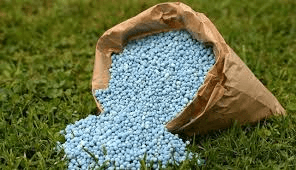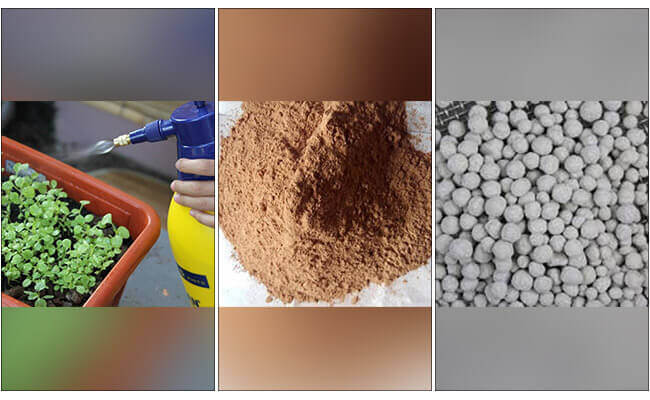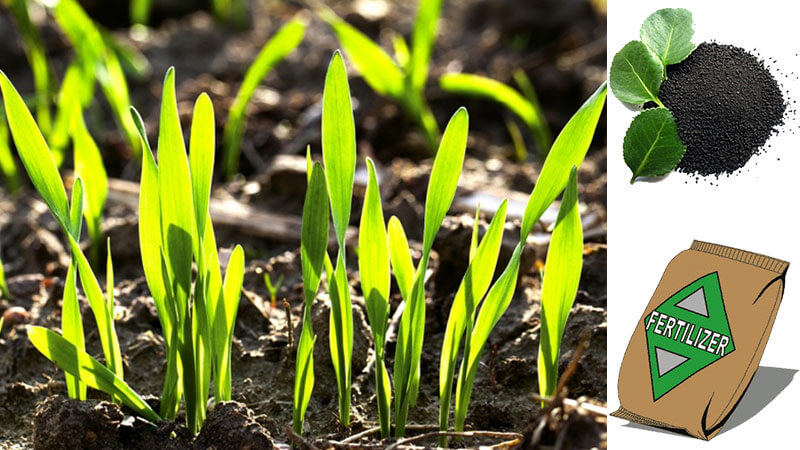Advantages and Disadvantages of Chemical FertilizersTo attain the highest production possible in traditional agricultural systems, chemical fertilizers have been employed extensively. Chemical fertilizers are used incessantly and excessively, impacting the environment directly and indirectly. A fresh, sustainable approach to agriculture is required to resolve this issue and provide food security for the growing population. 
Agriculture that is more efficient and produces more for less money is considered to be sustainable. Sustainable agriculture has used beneficial bacteria to increase productivity with great success. To increase crop yield, herbicides and chemical fertilizers were, however, primarily used due to the growing world population and the limited availability of land resources. The ecosystem was negatively impacted by this extensive use, either directly or indirectly. The Definition of Chemical FertilizerAny variety of synthetic compounds produced, especially to boost crop productivity, is referred to as "chemical fertilizers" in this context. Some chemical fertilizers are phosphate-based, whereas others are "nitrogenous" (contain nitrogen). Potassium fertilizers are additional. 
Chemical fertilizers that are complex (or mixed) frequently include a combination of potash, nitro phosphate, ammonium phosphate, and other elements. When learning about the value of fertilizer, it's crucial to keep in mind that the best chemical fertilizer for you will depend on the weather and the sort of crop you're growing. Use of Chemical Fertilizers: How Important Is It?It all boils down to effectiveness when discussing the benefits of fertilizer use in agriculture. With the help of chemical fertilizers, farmers can increase their agricultural production on a particular plot of land. The more a plant can grow, the better. For each plot of land to produce as effectively as possible, fertilizer is necessary. Chemical fertilizers can even make poor soil produce notable harvests if you know how to utilize them, provided you do so carefully. How Are Fertilizer Brands Unique From One Another?Choosing the ideal fertilizer for your particular needs comes next after you have realized how important fertilizer is. Given the wide range of brands present in the fertilizer industry, you could feel a little overwhelmed. Don't worry, though; based on your particular needs, it's typically not too difficult to reduce your options. You must first decide how you will use your fertilizer. For instance, a fertilizer company specializing in high-filler fertilizer blends would likely be advantageous to anyone interested in a "homeowner blend" (used only for grass, gardening, and other similar applications). For those who want to maintain the appearance of their lawn, a fertilizer with a high filler content is the ideal choice because it includes less active chemical fertilizer than industrial blends. These consumer blends frequently contain low concentrations of slowly released nutrients, which promote long-term growth. 
In other words, the significance of fertilizer greatly relies on the situation. If you don't pick a brand and product kind that suit your unique objectives, you could not get the best outcomes. A similar option is an organic fertilizer. Although they have their uses, chemical fertilizers are frequently quicker, more effective, and considerably more cost-effective than the organic alternative. A homeowner fertilizer mix, on the other hand, is not the best choice for a larger enterprise where crop production and sustainability are crucial. Commercial chemical fertilizers are developed specifically for particular crops and climates, and they cover broad geographic areas. The Profitability of FertilizersCalculating the appropriate amount of nutritional materials to add is indeed the practical objective. The results are regarded as an estimate of enhanced crop production which will emerge from nutrient addition because the farmers want to understand how much gain to anticipate when purchasing fertilizer. Nutrient expenditures must be weighed against crop value or even against less expensive alternatives, such as putting the money into an endeavor with a higher future return. 
Fertilizer technology is a perfect illustration of the diminishing return law. Equal chemical inputs provide a decreasing increase in yield after a given threshold. The farmer's objective is to apply fertilizer in a method that achieves the highest return on investment. In addition to minimizing excess and inappropriate application, ideal fertiliser protects neighboring rivers from damage and agricultural waste. Unfortunately, the costs & prices of the unregulated free market do not take into consideration water contamination from fertilizer runoff, which has an impact that goes far beyond the farmers as well as the fields. Fertilizers can help farmers make lucrative farming adjustments. By raising the rates at which fertilizer is applied to the main cash or crop farming, the operator can lower production costs per unit and boost profit margins over the total cost. When a land property is converted from excess crops to other purposes, it can invest in improvements such as soil conservation. Various Important Chemical Fertilizers
This nitrogenous fertilizer is used to increase the yield of crops like rice, potatoes, and other similar ones. This fertilizer contains roughly 25% ammonia, which the alkaline soil's denitrification microorganisms transform into nitrate. Because nitrates are soluble in water, plants may readily take them from the soil.
This fertilizer contains nitrogen, which the plants may immediately absorb. There is no concern about this fertilizer causing pollution since it is instantly absorbed by the water.
This is a homogenous blend of Gypsum with calcium dehydrogenate phosphate. This fertilizer's responsive ingredient is calcium dehydrogenate phosphate, which is water soluble.
Due to its high N concentration (46%N), urea is the most significant nitrogenous fertilizer. In addition to being used in crops, it is added to cattle feed as a supplement to help meet some of the animal's protein needs. It is also used extensively in industry, most notably in the manufacture of plastics. Because urea hydrolyses quickly into ammonium carbonate, it is possible that considerable amounts of ammonia sprayed on bare soil surfaces would volatilise. Numerous substances referred to as urease inhibitors may change how quickly urea is hydrolyzed. When urea is introduced to the soil, these inhibitors deactivate the enzyme and stop it from rapidly hydrolysing urea. For this reason, particular precautions must be taken while adding urea to the soil to avoid the loss of nitrogen due to a chemical reaction. If there are huge amounts of this substance applied alongside or too near to the seed, the quick urea hydrolysis in the soil is also to blame for ammonia harm to seedlings. As a result, it is used while planting seeds in the ground, but the seeds never come into contact with fertiliser. Three to four days after applying urea to the soil, water is introduced.
Chemical fertilizers are made of calcium cyanamide, commonly known as nitrogen. It aids plants in producing large yields, enhancing farmers' earnings. The substance is sprayed directly into the soil, where it decomposes into components that aid in plant development. This fertiliser is applied to the soil before the planting of seeds. However, it is never used to promote crop development.
This nitrogenous fertilizer is marketed or sold under the name "Norwegian saltpetre." Given that it contains two elements that are often found in high-sodium fertilizers, it is sometimes referred to as a "double salt." Advantages of Chemical FertilizersChemical fertilizers provide qualities that fit the high standards and requirements of intensive agriculture, demonstrating their adaptability. Among the benefits this kind of product provides are the following ones:
Chemical fertilizers make it easier to operate on surfaces and inaccessible areas for agriculture. These may promote greater yields per hectare of seeded area and aid in the development of plants due to their significant contribution of macronutrients. These fertilizers enhance the roots' depth by approximately one metre, making the plants stronger and more able to get all the nutrients they need from the underground fluids. They also help the soil absorb nutrients more effectively.
By using fertilizers in conjunction with other chemicals and techniques, such as liming, one may modify certain soil properties, such as very low or high levels of acidity. The cautious and thoughtful use of these goods, together with other organic and ecologically friendly products, aids in the preservation of the quality and richness of agricultural soils for future production cycles.
Chemical fertilisers could provide a quick solution when crops have serious issues, and plants don't grow correctly. N-P-K fertilizers, which are composed of nitrogen, phosphorous, and potassium, may improve the health and potential of plants that are at an advanced stage of development by foliar applications. In this method, the fertilizer is diluted with water and then propagated just where the plant is.
These fertilizers have particular chemical characteristics and detailed indices of nutrient supplements, substances, and values. As a consequence, you may discover products on the market that are made to meet your needs and have exact values and characteristics to satisfy your requirements in certain situations or phases of the cycles. Disadvantages of Chemical FertilizersThe huge potential of chemical fertilizers was stressed in the preceding sentence. However, bear in mind that frequent usage of chemical fertilizers may have negative consequences. To ensure that the different values are ideal and to spot adverse responses in real time, equilibrium points must be identified and supplemented with fertilizers and organic compounds. Regular soil and plant analysis is also necessary. Some negative effects and side effects of careless and excessive use of chemical fertilizers include the following:
Because they are manufactured in facilities, fertilizers are more expensive than manure that is produced organically. But since it is essential for plant nutrition, it is in great demand and hence expensive.
If too much is applied, the roots and other plant tissues may be harmed, and the plant may eventually die. Depending on the needs of the plant, fertilizers are applied. In particular, if plants are grown in rich, fertile soil, unnecessary usage of them might harm the health of the plant.
The market is filled with various fertilisers, some of which are created chemically. Both people and plants are harmed by these toxic fertilizers. Fertilizers can cause skin irritability and respiratory issues. may transmit dangerous chemicals into our diet, affecting
Fertilizers have an indirect or indirect impact on the environment via soil contamination and groundwater pollution, which may also influence plant development by causing it to grow more quickly than usual. The eco system may be impacted.
Fertilizers have the potential to degrade soil quality and damage soil microorganisms. Long-term usage alters the pH of the soil and lessens naturally beneficial microbial activity for plants. ConclusionJust utilize them, that's all. Spend some time talking to local experts to learn more about the value of fertilizer and how to choose the best type for your requirements, then start there. If you want to increase crop productivity, chemical fertilizers are a great alternative just apply them wisely. Contact an FGS shop in your area and ask to talk to a fertiliser specialist if you need assistance choosing the appropriate fertiliser. |
 For Videos Join Our Youtube Channel: Join Now
For Videos Join Our Youtube Channel: Join Now
Feedback
- Send your Feedback to [email protected]
Help Others, Please Share










